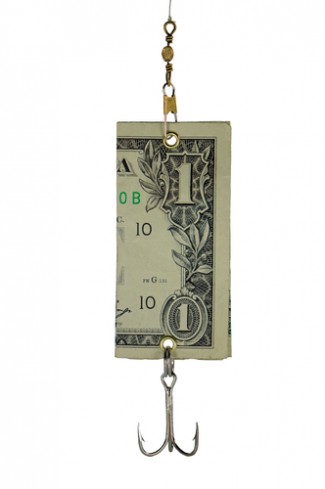SEC alleges Las Vegas lawyer shot by FBI was part of a $449M Ponzi scheme

Image from Shutterstock.
The U.S. Securities and Exchange Commission alleges in a lawsuit that a Las Vegas lawyer and his law firm were involved in a $449 million Ponzi scheme that sold investments in fictitious insurance tort settlements.
The SEC lawsuit, filed April 12 in federal court in Nevada, seeks to halt the scheme and to seek disgorgement and other civil penalties.
Matthew Wade Beasley was shot and injured by FBI agents in March after he allegedly pointed a gun at them in “a sweeping motion.” The FBI agents had gone to Beasley’s home to interview him. A SWAT team had to retrieve Beasley, who refused to leave his home for nearly four hours, despite his injuries, prosecutors said.
The SEC lawsuit says investors were told that their money would be used to make advance payments to plaintiffs who had settled tort claims and were willing to pay a premium to get part of their settlement in advance.
Investors were promised annual returns of 50% or more, the SEC says.
Investors were told that Beasley and his Nevada law firm, the Beasley Law Group, had relationships with many personal injury attorneys who provided the settlement contracts.
Beasley and other defendants used part of the investor money to pay “returns” on investments, according to the lawsuit. But the defendants “used the bulk of investor money to fund lavish lifestyles, including purchasing luxury homes and properties, a private jet, ATVs, boats and numerous luxury cars for themselves and their relatives,” the suit says.
Money allegedly flowed into the scheme through the IOLTA account of Beasley’s law firm.
During Beasley’s standoff at his home, he repeatedly confessed to an FBI negotiator that the investment vehicle was actually a Ponzi scheme that he started in 2016 or 2017, the suit alleges.
Beasley allegedly told the FBI negotiator that he never contacted the attorneys who supposedly provided settlement plaintiffs. When he got investor money, Beasley said, “I kept it and used it to pay, basically pay them back to pay off gambling debts.”
Some investors contacted the attorneys listed on their contracts and learned that they never provided settlement plaintiffs for their investments. When confronted about their findings, other defendants said the lawyers were probably denying anything because of client confidentiality concerns.
Later, new investors were often required to agree that they wouldn’t contact any parties related to the settlements without written approval.
Hat tip to Law360, the Las Vegas Review-Journal and Bloomberg Law, which covered the SEC lawsuit.



